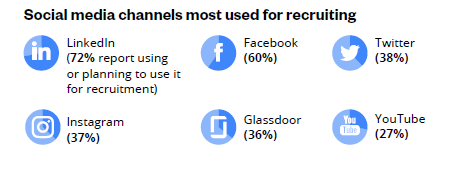Laura Smith-Proulx
Jenna Arcand
Planning to hold off on your job search during the holiday season, believing that no one hires at this time of year? You could be missing lucrative opportunities to snag a great new role.
Most professionals assume that the holidays are a time of parties, year-end vacations, and relaxation—and they're right. The holiday season, however, is also a time in which candidates can easily locate new contacts and even find themselves approached by employers for a prime position.
Here are five key reasons to put aside the common myths surrounding a holiday job search:
2. You'll Enjoy The Advantage Of Less Competition
While you're eyeing prospective employers and actively collaborating with recruiters, other job seekers may have decided to lay low during the holiday season. Because of the diminished volume of competition (including the fact that some candidates are unreachable during the holidays), you could quickly be next in line for a call from an employer with an immediate need.
You may also find, when applying to an online job posting, that fewer candidates are reaching out to employers during this time. Be sure to use this to your advantage, stating in your cover letter that you're "eager to hear about their needs" and look forward to discussing how your skills and expertise can help them achieve their goals in the new year.
3. It's A Great Time To Rekindle Former Contacts
Failed to stay in touch with former colleagues or bosses? The holidays are a great time to reach out and drop a note to your circle, asking them if they'd like to stay in touch and perhaps get together for coffee or hop on a Zoom call.
Most people enjoy hearing from a past co-worker or supervisor, especially if it means they have the opportunity to catch up on personal or work details. Even though it's best to avoid asking for a favor (especially if you've dropped out of sight for a few years), you can still show an interest in their lives and cultivate a strong relationship that can last long after the holiday season.
5. Downtime From Work Can Provide More Time To Formulate Your Brand Message
If you haven't spent significant time and effort building your personal brand, holiday vacation time can give you a breather to work on your resume and LinkedIn profile.
No matter if you're writing job hunting documents (resume, cover letter, biography, and reference dossier) or online identity components (social media profiles, blogs, or online articles), you'll benefit from taking a closer look at your top achievements and gathering information about your career contributions.
Start building a strong brand message by answering these questions:
- What important projects were you involved in at work? Can you obtain news releases or other media features on the impact of these initiatives?
- How many times have you been promoted or earned an award for your work? What accolades or kudos did you receive in the process?
- How has your work affected the bottom line? What metrics can you use that point to cost savings, revenue increases, productivity improvements, or other benefits to your employers?
- What type of work are you consistently sought for—that distinguishes you among other team members or executives?
- What do others say when asked about the quality or impact of your work?
By gathering answers to these questions, you'll have a wealth of information from which to draw for your personal brand—ensuring that your reputation, professional achievements, and strengths take center stage during your job search.
Read all 5 reasons and the complete WorkItDaily article


